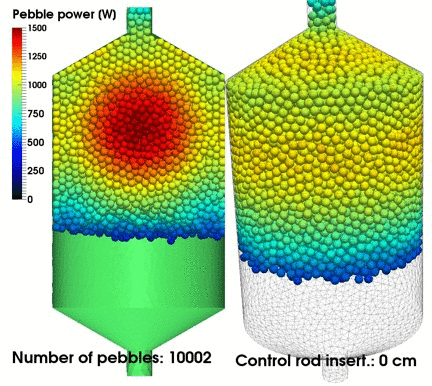Jeffrey Seifried (alumnus)
MocDown (http://jeffseif.github.io/MocDown/) is an efficient tool which loosely couples simulations for neutron transport, isotopic transmutation, thermo-fluids, and the equilibrium core composition search within advanced nuclear reactor cores. The development of MocDown focused on facilitating both fast runtime (by employing concurrent threading and efficient regex parsing when possible) and fast post-processing (with simple and consistent hierarchical storage of result files). MocDown also employs object-oriented programming in Python 3 for flexible modification with external libraries.
To do so, MocDown couples three models for self-consistent simulations: thermo-fluids, neutron transport, and transmutation and recycling. The MocDown accelerated recycling scheme efficiently finds the equilibrium cycle, whose isotopic composition matches that of its successor. Using these techniques, MocDown has been successfully used to simulate the RBWR-Th design, a fuel-self-sustaining nuclear reactor core design which operates with only thorium as its charge.
